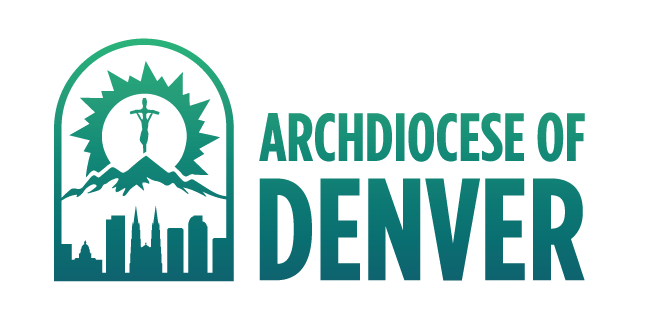Below are some frequently asked questions of the Office of Liturgy:
Why isn’t Ascension Thursday on a Thursday anymore?
In 1999, St. John Paul II approved a decree for the Latin Rite Dioceses of the United States of America that gave bishops of each ecclesiastical province permission to transfer the Solemnity of the Ascension of our Lord Jesus Christ, from the Thursday of the 6th Week of Easter to the 7th Sunday of Easter. In the Ecclesiastical Province of Denver (made up of the following dioceses: Cheyenne, Colorado Springs, Denver and Pueblo) we observe Ascension on the 7th Sunday of Easter. In the ecclesiastical province of Omaha (dioceses of Grand Island, Lincoln and Omaha) for example, they observe Ascension on the Thursday of the 6th Week of Easter.
If I am an Extraordinary Minister of Holy Communion (aka EMHC) at St. Barnabas Parish on Sundays, but during the week I attend Our Lady, Gate of Heaven Parish, can I be an EMHC at Our Lady, Gate of Heaven, as well?
Yes, you can be, but only with permission of the pastor of Our Lady, Gate of Heaven. The pastor at that parish would need to ask for a mandate (an authorization) from the Archbishop for you to perform the function as an EMHC at his parish. The mandate to be an EMHC for St. Barnabas and Our Lady, Gate of Heaven, is only for functioning at those specific parishes and the institutions or homes within their boundaries.
Should I be cremated before or after the Funeral Mass?
The Order of Christian Funerals’ Appendix on Cremation states: “Although cremation is now permitted by the Church, it does not enjoy the same value as burial of the body. The Church clearly prefers and urges that the body of the deceased be present for the funeral rites, since the presence of the human body better expresses the values which the Church affirms in those rites” (no. 413).
Can cremated remains be present for a Funeral Mass?
That is up to the priest who is celebrating the Funeral Mass. Some priests do not allow cremated remains to be present, because family members have divided the cremated remains amongst themselves, or made jewelry out of the remains, or intend to scatter the remains or intend to never bury the deceased. If the cremated remains are present for the Mass, the pall (cloth that is placed over the casket as a reminder of the baptismal garment) won’t be placed on the remains. Also, some of the wording in the Order of Christian Funerals (ritual text for a Funeral) is changed because the body is not present.
Christmas and New Year’s Day are on Monday, how should the liturgies be celebrated?
On Sunday December 24, 2017, the Mass is of the 4th Sunday of Advent until 4:00 p.m. when the Advent Sunday is outranked by the Vigil Mass of the Solemnity of the Nativity of the Lord. It is not a “2-for-1” day in which a person can fulfill their 4th Sunday of Advent Obligation as well as the holy day obligation for Christmas at the 4:00 p.m. or subsequent Masses on December 24. Hence, a person will need to attend a Mass before 4:00 p.m. on December 24 to fulfill the Sunday obligation and then the Mass of Christmas after 4:00 p.m. or on December 25 to fulfill the holy day of obligation.
Regarding December 31, 2017, the Mass is of the Holy Family of Jesus, Mary, and Joseph the entire day. Since the Solemnity of Mary, The Holy Mother of God, January 1, 2018 falls on a Monday, it is not a holy day of obligation and therefore a vigil Mass does not need to be celebrated after 4:00 for the solemnity.

